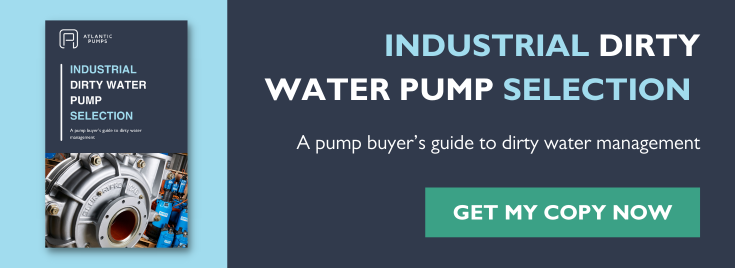Advantages Of Progressive Cavity Pumps In The Wastewater Process
For wastewater treatment operators, progressive cavity pumps can offer the ideal solution for many common challenges in sludge and mixed fluids handling. Here we explore the benefits of cavity pumps and how they can be used effectively in wastewater treatment.
What Are Progressive Cavity Pumps?
A progressive cavity pump is a type of positive displacement pump designed to move water in a steady, continuous flow. It consists of a cylindrical stator and rotor usually made of rubber or elastomer. The rotor rotates inside the stator, forming cavities that progress along the length of the pump as it turns. This movement creates a seal that pushes the liquid through the pump in a smooth and controlled manner, even with varying viscosities or particle-laden fluids.
Why Use A Progressive Cavity Pump?
- Steady Flow Rate - The design of a PC pump means it moves liquids along at a constant flow regardless of pressure changes which makes it ideal for situations where a constant flow rate is necessary.
- High Viscosity Tolerance – PC pumps can handle fluids with a high level of solids which is common in wastewater treatment.
- Low Pulse Rate – The smooth, non-pulsating flow ensures a steady stream which reduces wear and tear on the pump and its components.
- Durability – The sturdy nature of progressive cavity pumps and their ability to handle abrasive liquids make them a reliable option for long-term use in wastewater treatment facilities. They come in two designs – one for smooth pastes and the Toro-Kronoa range which is designed for more aggressive sludges
- Superior Capacity - Toro progressive cavity pumps can handle both low and high-viscosity fluids, are extremely versatile and pump up to 24 bar pressure, making them unique in the industry.
Uses In Wastewater Treatment
Progressive cavity pumps are widely used in the UK wastewater industry due to their ability to handle high-viscosity liquids, solids and fibrous content. They’re adept at handling sludge without clogging and are often used to transport it between various treatment stages or to dewatering equipment.
They are also used for precise chemical dosing and can provide accurate metering of chemicals such as coagulants or pH modifiers. Their non-pulsating flow helps maintain a consistent feed rate for effective chemical application.
Additionally, they’re used for digestive sludge transfer from anaerobic digesters to subsequent treatment or storage and can be employed to feed sludge into thickeners, which helps reduce water content before further treatment or disposal.
Maintenance Considerations
While PC pumps are extremely versatile they do require regular maintenance to keep them running optimally. The rotor and stator can wear over time due to friction, especially when handling abrasive sludge, so regular inspection and periodic replacement of these parts is a must.
Look out for PC designs that are designed specifically for your particular wastewater application; some models are best for high-efficiency movement of smooth and thin pastes, some for abrasive or larger solids sludge. When choosing a new PC pump from a maintenance point of view, consider material wear-life, ease of switching out the wet parts, spare part cost and local availability, number of inspection ports, and maximum solids size passage.
With a like-for-like flow rate, a PC pump with a shorter pitch will generally result in lower maintenance and running costs. The cavities are deeper and the motor doesn’t need to run so fast.
Progressive cavity pumps play an important role in wastewater treatment because of their ability to deal with particle-laden fluids. They contribute to effective waste management and are an essential component in any water facility.
Find out more about the pumps available in our Industrial Dirty Water Pump Selection Guide
For more information on Toro T-Line Progressive Cavity Pumps please call us on 0800 118 2500 or get in touch via our online form.



